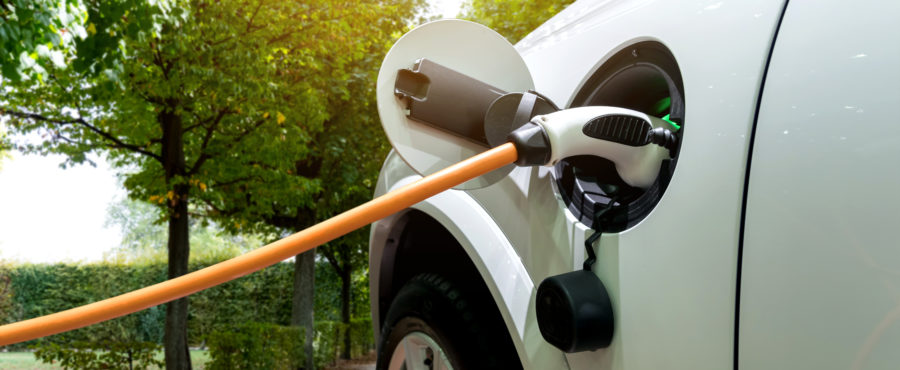
In 2020 the European Union is implementing new carbon emission restrictions for cars. Most manufacturers are already preparing for them and modifying their offers by adding hybrid and electric models. These models will help the manufacturers to fulfil new limits imposed on by the European Union. “New EU restrictions will boost transport electrification,” says spokesman for Volvo Car Poland. Next month, this brand, which for several years now has been moving towards hybrid drives, is to present its first fully electric car.
“The Polish market of electric and hybrid cars still lags behind other EU countries. Only about 7 thousand electric cars have been registered in Poland for the past few years. There are tens of thousands of hybrids, but this number is no way near high. This, however, is going to change because the EU imposes onto car manufacturers new, very stringent norms of carbon dioxide emission and the only way to comply with them is to offer hybrid and electric cars,” Stanisław Dojs, Volvo Car Poland’s spokesman tells Newseria Biznes news agency.
Dojs stresses that in the Polish market, the purchase of an electric car, unless resulting from corporate fleet policies, is mainly an individual decision of a driver. However, till now there have been no special incentives such as tax reliefs, which could make such a purchase economically reasonable. They have just been introduced in the electromobility act. On the other hand, in Poland there are no extra tax charges related to carbon dioxide. For comparison, in Denmark, taxes on cars emitting high amounts of carbon dioxide reach even 270 per cent already at the moment of purchase, so buying an electric vehicle is much more economically reasonable.
“Poland is a very liberal market. However, this may change because electrification is a fact. Subsequent manufacturers introduce mild hybrids, which recover only some power when braking, and plug-in hybrids, which are capable of running 30-40 km in almost the same manner as electric cars. We are also seeing some market debuts of electric vehicles,” says Stanisław Dojs.
From 2020 the European Union introduces new carbon emission standards for cars – the limit will be 95 grams of carbon dioxide per kilometre. Manufacturers of slightly heavier, premium-class cars like Volvo, have only slightly higher limits (107 grams). Starting from 2025, the EU is planning to introduce another reduction by 15 per cent.
“There is only one way to comply with these limits – congestion engines must have lower capacity. They frequently must also be supported by electric engines,” adds Stanisław Dojs.
Volvo Car Poland spokesman points out that now most manufacturers are preparing for the EU carbon emission standards and modify their model ranges by adding hybrid and electric cars. They are to help them stay in the market and fulfil the requirements imposed on by the European Union.
“Another contribution will come also from companies, particularly international ones, operating in Poland, which include carbon dioxide limits in their car fleet policies. This is significant as the segment of more expensive cars depends on the business sector as there are very few individual clients who buy cars for non-business purposes,” explains Dojs.
In addition to environmental benefits and fuel savings, clients are more and more often starting to recognize other benefits of traveling by hybrid and electric cars.
“Such cars almost noiselessly move around parking lots. They also encourage slower driving. When you want to accelerate in a plug-in hybrid, you just softly press the gas pedal and the car just floats; it is quiet and calm inside. If the situation on the road requires rapid acceleration, you may use both the electric and congestion engines at the same time. Then, the car will leave behind most congestion engine models, as electrification offers amazingly numerous benefits in everyday use, which we learn to appreciate only when we start driving such a car,” says Stanisław Dojs.
Volvo has had plug-in hybrid models in its offer since 2012, while for a few years now this manufacturer has been gradually withdrawing engines of over 2 litres in capacity and diesel engines. From this year on, all the new models of the Volvo brand will be hybrid, while next month a fully electric Volvo model will have its premiere.
The brand’s long-term strategy provides for gradual conversion to hybrid drives, and later on – to electric ones. Last year in Poland, Volvo sold 168 plug-in hybrid vehicles, which are the most technically advanced and most expensive cars in the brand’s portfolio. For comparison, last year the company sold 100 such vehicles.
“We are all aware that we live on the same planet, we breathe the same air and that climate change results directly from human activity. Even the smallest things, from waste sorting, through saving electricity or using electric or hybrid cars, are something we may do for our planet. In Poland environmental awareness is constantly growing and it is a widely discussed topic. The choice of a car more and more often involves a decision to care for the environment,” says Kamil Sokołowski, in charge of Volvo Car Poland’s PR activities and central events.
Source: Newseria




